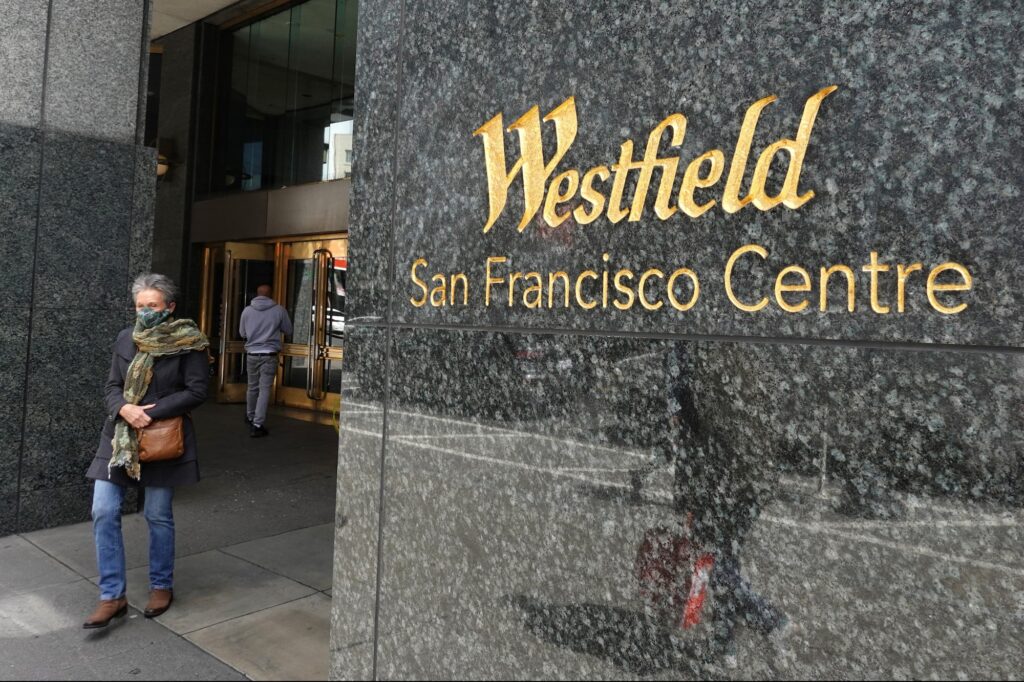Mall operator Westfield will be giving up its San Francisco shopping center and has begun the process of transferring control of the Market Street mall to its lender, The San Francisco Chronicle reported.
The company pointed to “challenging operating conditions” in the downtown area that have ultimately led to a decline in sales, occupancy, and foot traffic.
Last month, the mall’s biggest vendor, Nordstrom, announced it wouldn’t be renewing its lease at the Market Street mall and will officially close both Nordstrom and Nordstrom Rack at Westfield by August. Nordstrom occupies 312,000 square feet of the mall and, when it closes, only 55% of Westfield San Francisco will be leased, according to The Chronicle — strikingly low compared to Westfield’s average occupancy at other locations (93%).
Westfield San Francisco’s sales and foot traffic has also been significantly lower than other Westfield locations, including others in California. From 2019 to 2022, Westfield San Francisco experienced about 34% decrease in overall sales while the Silicon Valley and California flagship locations had a 66% and 26% increase, respectively, according to The Chronicle.
Related: San Francisco Launches $6 Million Ad-Campaign to Lure Tourists Amid Retail Exodus and Drug Crisis
“It’s just unfortunate what’s happening here with the economy and what’s going on on the streets,” Gary Hageman, a general manager of a nearby hotel who visits the mall frequently, told the outlet.
Since 2020, at least 20 major retailers have left or announced plans to leave San Francisco’s downtown area. While the retailers’ decisions to exit may vary, the common denominator is a stark decline in foot traffic, due to a confluence of factors including the widespread adoption of remote work that has decreased activity in the downtown area, as well as the ongoing issue of homelessness and open-air drug use.
Earlier this month, the owner of San Francisco’s two biggest hotels (Hilton San Francisco Union Square and Parc 55) announced he would be giving up the properties.
“After much thought and consideration, we believe it is in the best interest for Park’s stockholders to materially reduce our current exposure to the San Francisco market. Now more than ever, we believe San Francisco’s path to recovery remains clouded and elongated by major challenges — both old and new,” Thomas Baltimore Jr., CEO of Park Hotels, said in a statement.
Related: San Francisco Whole Foods Closes To ‘Ensure Safety’ of Employees
